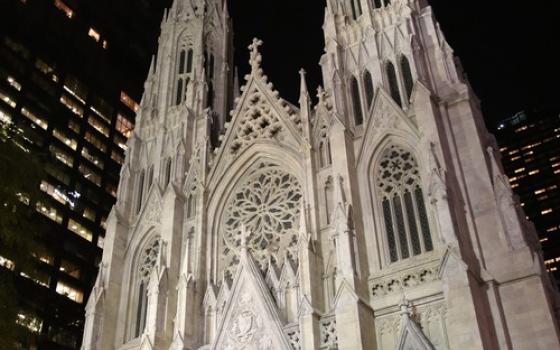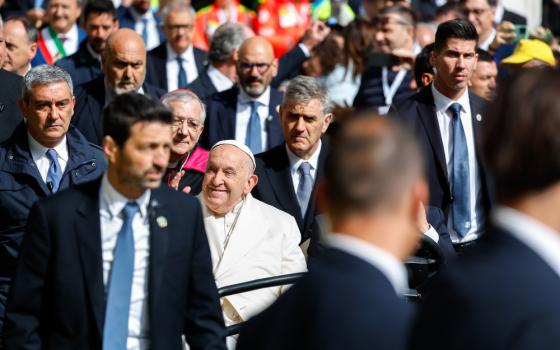
Following are NCR reader responses to recent news articles, opinion columns and theological essays with letters that have been edited for length and clarity.
Primacy of conscience
Bishop William Byrne of Springfield, MA criticizes Dr. Anthony Fauci, a Catholic, for relying on his own ethics to keep him on the right path (ncronline.org, Feb. 9, 2024). Your article notes that Fauci does not attend Mass regularly. The bishop implies that absent regular reception of the Eucharist, one cannot live ethically. I have benefitted from twenty years of Catholic education culminating in a Master of Theology. I was taught that the purpose of that education is to ensure that, as an adult, I have a well-informed conscience. I was taught by the Church that push come to shove, a well-informed conscience trumps Church teaching because its teachers, like Byrne, are human and can err. For example, with all my Catholic education, I am pro-choice because I recognize the incredible complexity of ethical issues parents-to-be may face and therefore strongly believe that decision should not be dictated by the government and certainly not by celibate males. The bishops seem to think that what the Church needs to prosper again is a “Eucharistic Revival”, as if Jesus sought to be adored. What the Church needs is leadership whose lives exemplify how Jesus lived. The Church taught me that God loves all. I cannot begin to imagine Jesus sitting in judgment of who was worthy to be in his presence. I am scandalized every time I hear a priest inform people who may receive and who should remain seated.
MARK A. MATSON
Columbus, Ohio
***
Advertisement
Louisiana Excommunication
Scott Peyton became a deacon a decade after the child abuse scandal first broke in Boston (ncronline.org, March 27, 2024). He was dedicated to serving the Catholic Church despite its flaws. But he was also dedicated to his family. When his son became a victim of abuse by a priest Peyton was serving with, he did not immediately abandon Catholicism, however. Instead, he became an advocate for Catholic victims, though it became increasingly clear to him that the Catholic organization was not on the side of victims or their families. Yet it is inaccurate to say he has left the church. He is choosing to worship with another branch of the Christian family. He remains a member of the People of God, the Christian church, through his baptism and his faith (CCC 782).
The Christian church is a human and therefore innately fallible and flawed community of innately fallible and flawed individuals. Catholic leaders like Bishop Deshotel are obvious examples of these flaws. Leaders like Scott Peyton, on the other hand, are examples of the love, compassion, and commitment to justice that truly exemplify Jesus. He is the kind of leader we should be seeking to emulate, not excommunicate.
MONA VILLARRUBIA
Metairie, Louisiana
***

Catholicism and immigration
It would appear too many of our fellow Americans seem to forget their own origins since the majority of our population can trace their ancestry to immigrants (ncronline.org, April 1, 2024). Many, like myself, stem from the early 20th-century immigration wave. Our ancestors were likewise treated with suspicion since they did not speak English, and in most cases were Catholic. That arguably created suspicion by some members of the broader Protestant culture who saw the newcomers as not able to blend into their prevailing culture. The same arguments made then are made now: among others, that the new arrivals threaten to take away jobs from others.
Those who recognize our economy needs larger numbers of immigrants are those who recognize the manpower they represent as well as their industry and desire to make a positive difference for their own families and our country. The church needs to make the same argument it did in earlier times; embracing the newcomers and providing a means for them to acclimate to their new culture while still encouraged to embrace their own — just as our ancestors were embraced by Catholic parishes which recognized diverse national origins.
Unlike the negative arguments made by some of our clerics, politically motivated perhaps, about segments of the population which they themselves shun, our church needs to send a message of acceptance and embrace. The messages which our clerics send to our faithful always resonate, positively and negatively with the larger population. Only twenty-five percent of our population may be Catholic but the influence of our church goes far beyond those limited demographics.
CHARLES A. LE GUERN
Granger, Indiana
***






